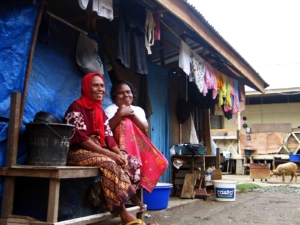Gender Equality in Indonesia
 As the fourth most populous country in the world, Indonesia continues to battle poverty and conditions of inequality for women. However, Indonesia has made strides in improving access to education for girls. The nation also has one of the highest literacy rates in Asia. Various U.N. programs are promoting women’s access to learning while advancing the benefits of women in Indonesia’s marketplace. Here are many ways in which gender equality in Indonesia is improving.
As the fourth most populous country in the world, Indonesia continues to battle poverty and conditions of inequality for women. However, Indonesia has made strides in improving access to education for girls. The nation also has one of the highest literacy rates in Asia. Various U.N. programs are promoting women’s access to learning while advancing the benefits of women in Indonesia’s marketplace. Here are many ways in which gender equality in Indonesia is improving.
Women in Politics
Indonesia implemented a democratic system in 1998. Since then they have implemented laws that decrease the inequality gap between men and women. For example, one law requires that political parties be composed of at least 30% of women. 2018 even saw Indonesia’s female finance minister voted Best Minister in the World by the World Government Summit. Women in Indonesia have also been influential in promoting certain bills that grant women more rights. The 2019 sexual violence bill, for example, identifies nine different forms of sexual harassment all of which would be made illegal. Discussion of this topic is taboo in some social settings in Indonesia, which makes support for this bill by women crucial.
Grassroots Movements
Women activists and Indonesian civil society organizations (CSOs) have played a role in breaking away social norms regarding inequality. With international support, these CSOs have impacted 900 villages over 27 provinces. This has positively affected more than 32,000 women from more than 1,000 groups in 2018. At the village level, these organizations promote women’s involvement in decision-making and focus on reducing violence against women.
Economic Empowerment
In 2019, U.N. Women launched an online learning platform that aims to empower women business owners called WeLearn. The platform offers free curricula to women entrepreneurs. WeLearn also provides access to lessons from industry experts and fellow women entrepreneurs.
A 2018 study of Women Empowerment Principles in the top 50 companies in Indonesia found that there was a minimum of one woman on every board of at least 84% of the companies that participated in the survey. These companies have also implemented initiatives to empower women in the workplace.
Access to Education
Access to education in Indonesia is also improving for girls. Indonesia has one of the highest literacy rates for women among Asian countries, with 99.7% of women ages 15–24 literate in 2018. By 2019, almost every child in Indonesia attended school at the elementary level. In fact, there were slightly more female students enrolled than male students. Furthermore, females were shown to do better than males.
Looking Forward
Intergovernmental organizations are also promoting gender equality in Indonesia. For example, the UNDP Indonesia Gender Equality Strategy and Action Plan 2017-2020 is committed to addressing four aspects of gender equality in Indonesia:
- Empower women to achieve a better standard of living and sustainable employment
- Work with local groups to grant women better healthcare access
- Support the involvement of women in the sustainable use of natural resources
- Improve access to responsible and fair public institutions, especially for women who are in more vulnerable situations
Overall, conditions of gender equality in Indonesia are improving through the involvement of women in politics and grassroots organizations. This is especially possible with the support of international organizations like the United Nations. Continued efforts to empower women entrepreneurs and communicate the benefits of women in the marketplace are essential to realizing greater economic benefits and achieving greater gender equality in Indonesia.
– Anita Durairaj
Photo: Wikimedia
